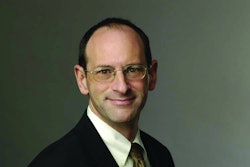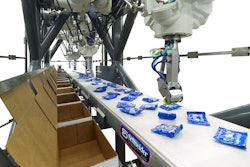This content was written and submitted by the supplier. It has only been modified to comply with this publication’s space and style.
The U.S. Pharmacopeial Convention (USP), a nonprofit global health organization that creates and promotes quality standards for medicines, herbal medicines/dietary supplements and food ingredients, today marked the official inauguration of its expanded state-of-the-art laboratory and administrative facility in Shanghai, China.
“This is a tangible demonstration of the importance and value that USP and our counterparts in China place on assuring the quality of medicines, herbal medicines/dietary supplements and foods in China, the US and in all countries around the world,” said Roger L. Williams, M.D., chief executive officer of USP. Williams celebrated the official opening of the new Shanghai site with a delegation of USP volunteers and leadership staff, along with representatives from China, the US Food and Drug Administration (US FDA) and other local and international dignitaries. Volunteer representation came from USP’s Board of Trustees and standards-setting body, the Council of Experts.
Williams noted the inauguration marks the beginning of a week-long series of symposia, workshops and training programs in Shanghai, along with meetings concerning Memorandums of Understanding (MOUs), advisory groups and expert committees. This series of meetings will highlight issues such as global quality standards for medicines; rapid testing technology to detect counterfeit and substandard medicines and foods; food standards, food testing and issues related to food adulteration and contamination; and other presentations regarding food and drug quality standards.
These forums and educational programs feature presentations from experts drawn from different parts of the world, focusing on cooperative efforts involving USP, the Chinese Pharmacopoeial Commission (ChP), China’s National Institutes for Food and Drug Control (NIFDC) and the China National Center for Food Safety Risk Assessment (CFSA). Representatives of World Health Organization and the US FDA are also attending various events associated with the inaugural week.
Williams said the expanded USP site in Shanghai features 95,000 square feet of space for laboratory facilities which have been designed to not only address today’s challenges related to product quality, but also to evolve and grow as new issues emerge. Additional administrative space may be used for education, training and allied activities associated with USP’s core standards-setting work. In addition to Shanghai, USP operates laboratories in São Paulo, Brazil; Hyderabad, India; and at USP’s headquarters in Rockville, Md. (USA).
“Having a facility of this size and capability on the ground in China is extremely valuable, especially in a city like Shanghai, which has become a significant part of global pharmaceutical R&D and manufacturing,” said Williams. “This location will provide improved opportunities for USP to connect and communicate with Chinese-based manufacturers and regulators; expand training and technical outreach; work jointly on documentary and physical standards; translate USP’s compendia into Chinese; promote the value of visiting scientist programs and other cooperative efforts.”
Williams explained that the pharmaceutical industry and the pharmaceuticals market in China are both growing rapidly. China is also a large and growing force in the production of generic drugs. China’s regulatory and compendial leadership has expressed its commitment to advancing modern, relevant standards for medicines and foods, and USP has joined in this effort via MOUs with ChP, NIFDC and CFSA. Given USP’s role in law in the United States, where the current official versions of United States Pharmacopeia and the National Formulary are referenced and enforceable by the US FDA, USP has also worked closely with FDA and its staff in China to advance good standards for foods and drugs.
“We live in an ever-shrinking world, which makes the quality of products made and sold in China just as important as the quality of products made and sold in the United States,” Williams said. “The global flow of products means that quality issues can have a wide impact and having a facility in China allows USP to work more closely with developments in this important industry.”
Williams added that the expanded presence in Shanghai is another step forward in a relationship whose groundwork was laid nearly a century ago, with the first translation of USP standards into Chinese in 1923.
In recent decades, USP outreach to China has intensified, starting with a 1990 visit to ChP. The following year, Mr. Wang Ping (currently the Deputy Secretary General of ChP) became the first Chinese scientist to participate in the newly established USP Visiting Scientists Program and the years since have seen the relationship continue to evolve and expand.
In inaugurating its new facility, USP expresses sincere appreciation to its hosts in China, which reflect a broad array of government bodies both centrally and in the district city of Shanghai, together with representatives from manufacturers, academicians and many other stakeholders from civil society.






















